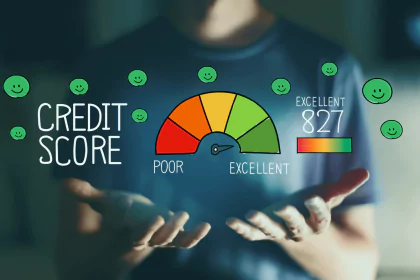In a world teeming with financial institutions vying for your business, choosing the right bank can seem like a daunting task. Do you prioritize convenience over customer service, or perhaps the interest rates over the range of services offered? This article delves into ten insider tips to help you navigate the complex landscape of banking options and find the perfect fit for your financial needs. Whether you’re looking for a local credit union or a global banking giant, these tips will guide you towards making an informed decision.
Understanding Your Banking Needs
Personal vs. Business Accounts
Before diving into the specifics, it’s crucial to distinguish between personal and business banking needs. Personal accounts cater to individual financial activities, such as savings, checking, and personal loans. Business accounts, on the other hand, are designed to handle the financial operations of a business, offering services like payroll management, business loans, and merchant services.
Assessing Your Financial Goals
Identify your short-term and long-term financial goals. Are you saving for a house, planning for retirement, or looking to grow your business? Understanding your goals will help you determine which banking services are essential and which institutions can best support these goals.
Research and Comparison
Evaluating Bank Reputation
The reputation of a bank is a strong indicator of its reliability and customer service quality. Look for banks with high customer satisfaction ratings, positive reviews, and a strong presence in the financial community. Websites like J.D. Power and Consumer Reports offer valuable insights into the reputations of various banks. Websites like J.D. Power and Consumer Reports offer valuable insights into the reputations of various banks.
Comparing Fees and Charges
Banks can differ significantly in their fee structures. Some may offer free checking accounts, while others might charge a monthly maintenance fee. Compare fees for services such as ATM use, overdrafts, wire transfers, and account maintenance. Choose a bank whose fee structure aligns with your financial habits to avoid unnecessary expenses. For more details, you can refer to How Much Do Bank of America, JPMorgan Chase, Wells Fargo, and Citigroup Charge for ATM Withdrawals.
Digital Banking Capabilities
Mobile and Online Banking Services
In today’s digital age, robust online and mobile banking services are essential. Evaluate the bank’s mobile app and online platform for user-friendliness, security features, and the range of services offered. A good digital banking experience can save you time and provide convenient access to your accounts from anywhere.

Integration with Financial Tools
Many banks offer integration with financial management tools like budgeting apps and investment platforms. These integrations can provide a comprehensive view of your finances and help you manage your money more effectively. Consider banks that offer these additional services if they are important to you.
Interest Rates and Rewards
Savings and Checking Account Interest Rates
Interest rates on savings and checking accounts can vary widely between banks. Look for banks that offer competitive interest rates to maximize your earnings. Additionally, some banks offer rewards programs that provide cash back or points for using their services.
Loan and Credit Card Rates
If you plan to take out loans or use credit cards, compare the interest rates offered by different banks. Lower interest rates can save you money over time and make it easier to manage debt. Be sure to read the fine print and understand any additional fees associated with loans and credit cards.
Customer Service and Support
Accessibility and Responsiveness
Good customer service is critical when choosing the right bank. Evaluate the accessibility of the bank’s customer service, including their hours of operation, availability of live chat, and responsiveness to inquiries. A bank with excellent customer support can provide peace of mind and assist you quickly when issues arise.
Personalized Financial Advice
Some banks offer personalized financial advice and planning services. If you value professional guidance in managing your finances, consider banks that provide access to financial advisors. These services can help you make informed decisions and achieve your financial goals more effectively.
Location and Convenience
Branch and ATM Availability
Consider the availability of branches and ATMs in your area. A bank with a wide network of branches and ATMs can provide greater convenience and reduce the need for out-of-network ATM fees. If you travel frequently, look for banks with a national or international presence.
Remote Banking Options
For those who prefer to handle their banking remotely, evaluate the bank’s options for mobile check deposits, online bill pay, and other remote services. Banks that offer robust remote banking options can save you time and make managing your finances more convenient.
Security and Protection
Fraud Protection Measures
Security is a paramount concern when it comes to banking. Evaluate the bank’s fraud protection measures, such as account monitoring, encryption, and two-factor authentication. Banks that prioritize security can provide peace of mind and protect your assets from unauthorized access.
Deposit Insurance
Ensure that the bank is insured by the Federal Deposit Insurance Corporation (FDIC) or a similar entity. Deposit insurance protects your money in the event of a bank failure, providing an additional layer of security for your deposits.
Special Programs and Offers
Student and Senior Accounts
Many banks offer special programs for students and seniors, such as reduced fees or higher interest rates on savings accounts. If you fall into one of these categories, look for banks that offer tailored programs to meet your specific needs.
Promotions and Bonuses
Some banks offer promotions and bonuses for opening new accounts or using certain services. These offers can provide extra value and incentives for choosing a particular bank. Be sure to read the terms and conditions to understand the requirements and benefits of these promotions.
Conclusion
Choosing the right bank involves careful consideration of your financial needs, goals, and preferences. By evaluating factors such as fees, interest rates, customer service, and digital banking capabilities, you can find a bank that aligns with your requirements and supports your financial journey. Remember, the right bank can make managing your finances easier and more efficient, helping you achieve your financial goals with confidence.
In summary, choosing the right bank involves evaluating various factors, from fees and interest rates to customer service and digital capabilities. By following these insider tips, you can find a bank that meets your needs and helps you achieve your financial goals.
FAQ — Popular Questions and Answers
Assess your business requirements, such as transaction volumes, need for merchant services, and accessibility of customer support. Compare different banks’ offerings and select one that provides the best fit for your business.
Look at fees for account maintenance, ATM usage, overdrafts, and wire transfers. Choose a bank with a fee structure that matches your financial habits to avoid unnecessary charges.
Interest rates can significantly impact your earnings over time. Compare rates offered by different banks and choose one that provides competitive rates to maximize your savings.
Good customer service ensures that you can get help quickly when needed, making your banking experience smoother and more efficient. Evaluate banks’ customer service availability and responsiveness.
Look for user-friendly mobile apps, secure online platforms, and integration with financial management tools. These features can enhance your banking experience by providing convenience and security.












